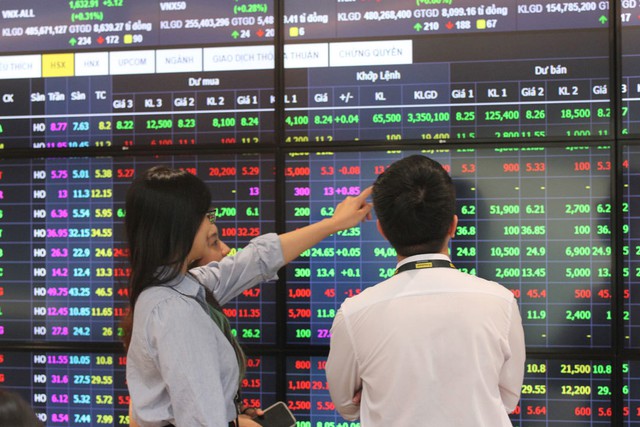Taxing capital gains from securities and real estate: A boost for long term investment
Mr. Nguyễn Thế Minh, Director of Research and Analysis at Yuanta Vietnam, analyzed the impact of the Ministry of Finance’s proposal to impose a 20% annual tax on profits from securities sales and a 20% tax on the capital gains from each real estate transaction.

This proposal is part of the draft amendment to the Personal Income Tax Law currently being circulated for public consultation by the Ministry of Finance.
According to Mr. Minh, investors should adopt a long-term perspective, focusing on sectors expected to benefit from government policies. He highlighted the importance of resolutions No. 57, 59, 66, and 68/NQ-TW as key frameworks for identifying investment opportunities.
Real Estate Transfers: Encouraging Long-Term Investment
The revised Personal Income Tax Law has been included in the 2025 legislative program and is expected to be submitted to the National Assembly for consideration at its 10th session in October 2025. One of the most notable changes in the draft law is the proposal to tax capital gains from real estate transfers at 20% per transaction. The taxable income would be determined as the selling price minus the purchase price and any reasonable expenses incurred in generating income from the transfer.
In cases where the purchase price and related expenses cannot be determined, personal income tax would be calculated based on the selling price multiplied by a tax rate. This tax rate would be linked to the holding period, capped at a maximum of 10%.
Yuanta forecasts that the proposed tax reforms would significantly impact the real estate sector, particularly if adopted and implemented starting in 2026. Vietnam appears to be taking cues from tax-based market regulations used in countries such as Singapore and Taiwan, while avoiding the more aggressive administrative interventions recently seen in China.
Yuanta believes the proposal stands a strong chance of being approved, likely during the National Assembly session in October 2025.
In the short term, a surge in real estate sales is anticipated before the law takes effect—especially among those who have held properties for less than two years. This could result in a spike in transaction volumes in the latter half of 2025. However, once the law is enacted in 2026, the market may cool as speculative investors withdraw.
Over the long term, the new tax regime is expected to encourage long-term investment behavior. Sellers are likely to delay selling until they reach the 2–5 year holding threshold, and rental investments may become more attractive. Transaction volumes are likely to decline, especially in speculative segments such as second homes and high-end properties.
Regarding real estate prices, while a reduction in secondary market supply may occur, prices are expected to increase more slowly and with less volatility. In the long run, price growth may become more sustainable as it better reflects the actual state of the market.
However, effective implementation of this tax regime requires robust infrastructure, including a database of historical real estate transactions to determine the cost basis, and documentation to verify deductible expenses related to the transfer.
Comparing Two Asset Transaction Tax Policies
The Ministry of Finance has also proposed revisions to the regulations on taxable income and tax calculation for capital and securities transfers. Notably, the draft law distinguishes between tax calculation methods for resident and non-resident individuals in securities transactions. In contrast, no such differentiation is applied to real estate transfers.
In many countries, most capital income is subject to taxation, although the tax mechanisms vary widely. Some jurisdictions tax based on a percentage of the transfer price, others on the actual gains, and some differentiate between listed and unlisted securities. Certain nations also offer tax exemptions or reductions for long-term investments to encourage sustained participation in capital markets.
Yuanta views the draft law as well-aligned with international norms, and the likelihood of its passage is considered high.
Furthermore, Yuanta believes the draft will not negatively impact liquidity in the short term. Evidence from other highly liquid markets suggests that they too impose personal income tax on gains from securities trading.








